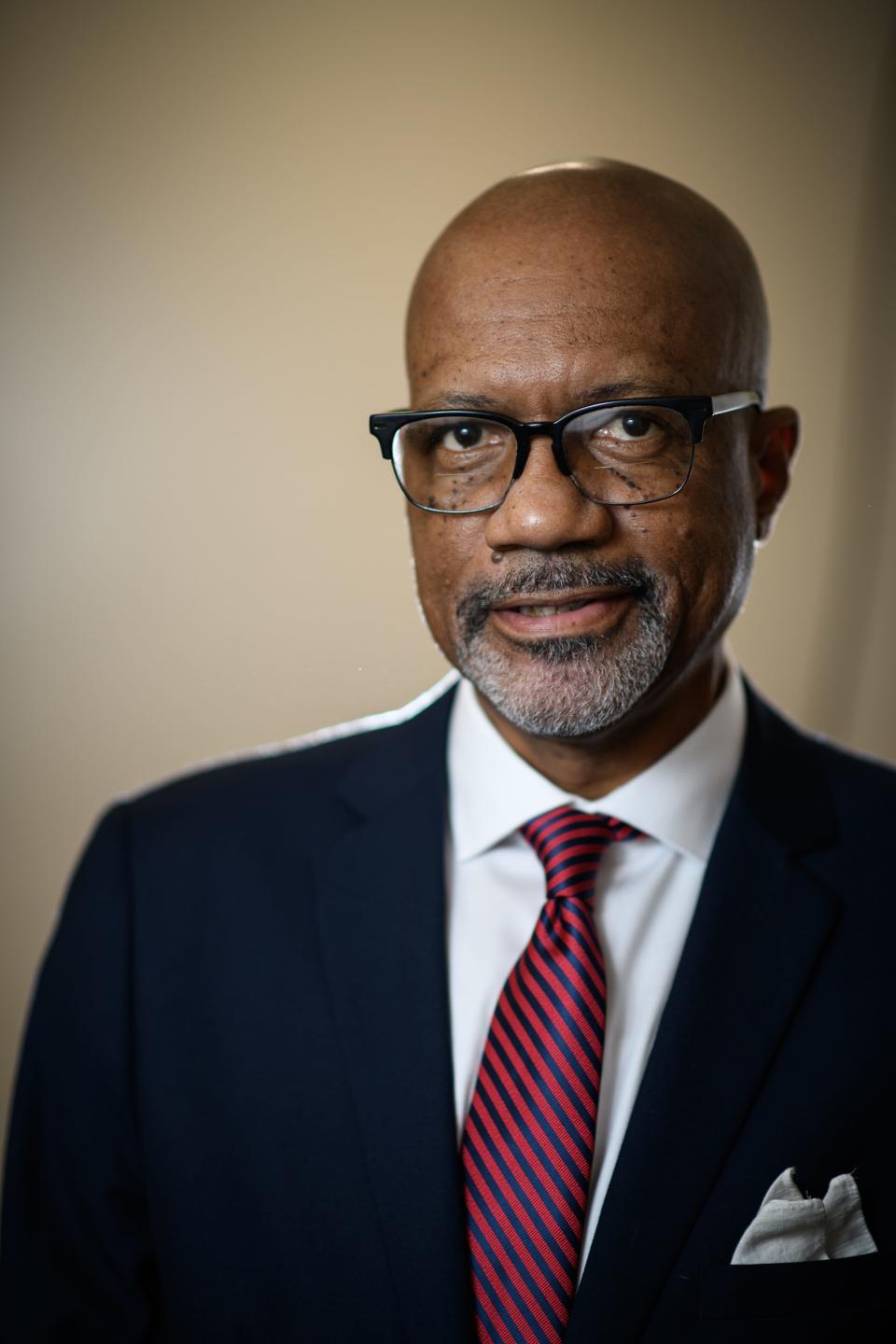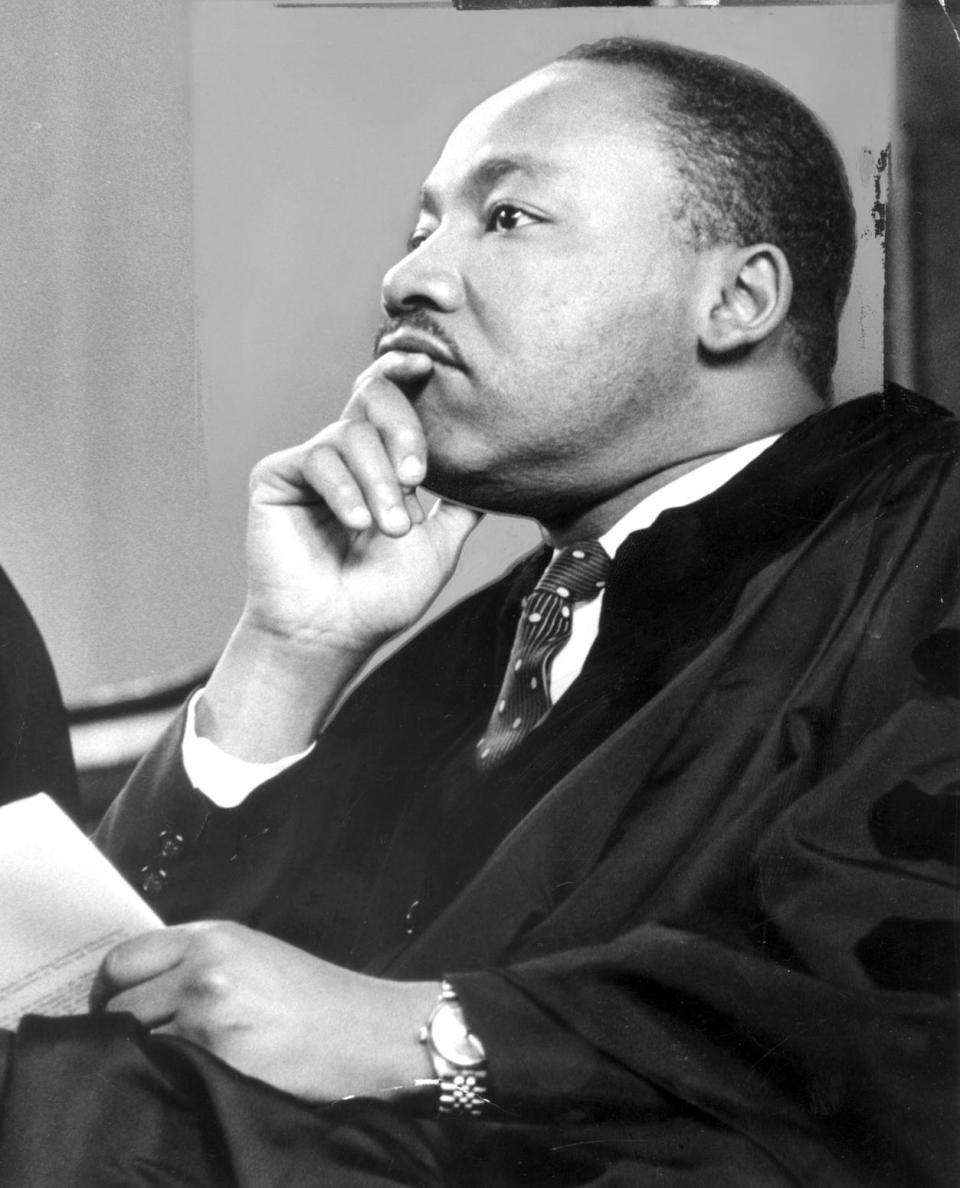Today, 955 streets in 41 states are named for King. But he was more polarizing in his time.
- Oops!Something went wrong.Please try again later.
This weekend will mark the 38th time America has paused to recognize one of its most influential citizens, Dr. Martin Luther King, Jr. The King national holiday is the only federal holiday set aside as a National Day of Service meant to be "a day on, not a day off."
There are more than 955 streets named after King in 41 states. King's home state of Georgia has the most, with 105.

The holiday is celebrated but has had controversy. All 50 states did not recognize the holiday until 2000, and two states, Alabama, and Mississippi, also honor Robert E. Lee, the Confederate general, both observing King-Lee Day as a state holiday.
More: King’s legacy includes his call for a guaranteed income, provided by the government.
Only three people have a national holiday celebrated in their honor: Dr. Martin Luther King, George Washington and Christopher Columbus.
King: A polarizing and inspiring figure all in one package
No figure is more closely identified with the Civil Rights struggle than Dr. Martin Luther King. Jr. His legacy is tied to his adoption of nonviolent resistance to achieve equal rights for Black Americans, which earned him the Nobel Peace Prize in 1964.
In its proper context, King was an incredibly courageous man. King's work was rooted in the heart of the hateful, segregated Jim Crow South. He was a polarizing and inspiring figure all in one package.
Dr. King was assassinated in 1968, arguably one of the most tumultuous single years in American history. But the year was also a turning point for America, and King, a proponent of peace, will be credited with helping change the landscape of our country in that critical era.
His Vietnam War opposition put him at odds with some in movement
Leaders of the anti-Vietnam War movement urged Dr. King to merge with them against the war. Understandably, King, being an advocate of nonviolence, was personally opposed to the war.
More: Troy Williams: What would MLK think of today’s America?
Still, he was also concerned that publicly criticizing America's foreign policy stance could damage his relationship with President Lyndon Johnson. Decidedly, King took a public and unpopular stance against the war, declaring it an enemy of poor Americans.

And he was right: Young Black men were sent to "guarantee liberties of others on foreign soil they had not found for themselves in America."
But some in the movement felt King's position was detrimental to getting Congress to pass Civil Rights legislation. The directors of the NAACP voted unanimously against the proposal by Dr. King to merge the Civil Rights and peace movements. They called it a "Serious Tactical Mistake." Their counter position ran on the front page of the New York Times, dated April 11, 1967.
From faltering appeal to most admired
According to an early 1968 Harris Poll, Dr. King's disapproval rating was nearly 75%, a shocking figure even in the 1960s. Of course, white racial resentment was driving up the numbers, but his appeal was faltering among some Blacks as well.
The problem: King was a visionary way ahead of his contemporaries, and as the old cliché says, "Time heals all wounds." By the end of the 20th century, King was one of America's most admired citizens, respected as much as John F. Kennedy and Albert Einstein. The admiration is well deserved, and the dream continues.
Troy Williams is a member of The Fayetteville Observer Community Advisory Board. He is a legal analyst and criminal defense investigator. He can be reached at talk2troywilliams@yahoo.com.
This article originally appeared on The Fayetteville Observer: Martin Luther King Jr. split with some Civil Rights leaders on Vietnam

